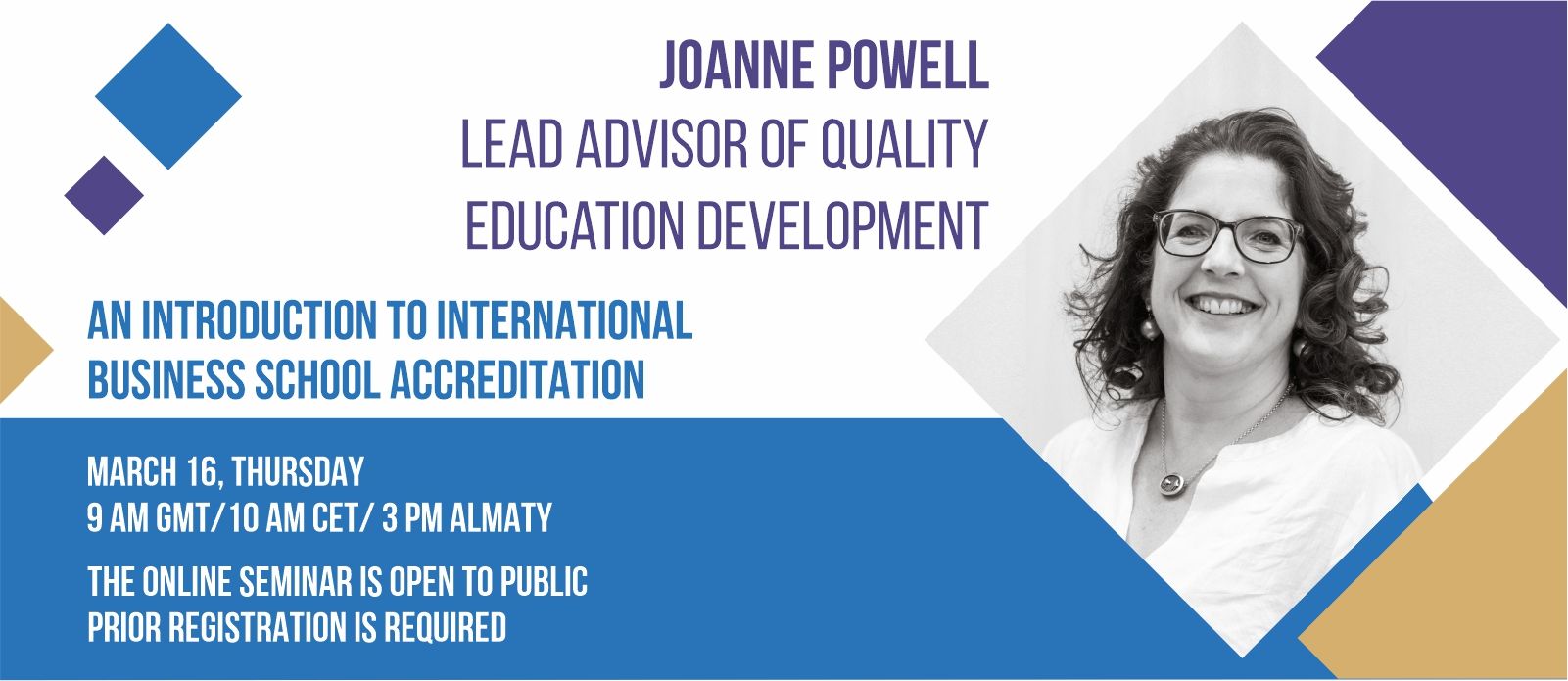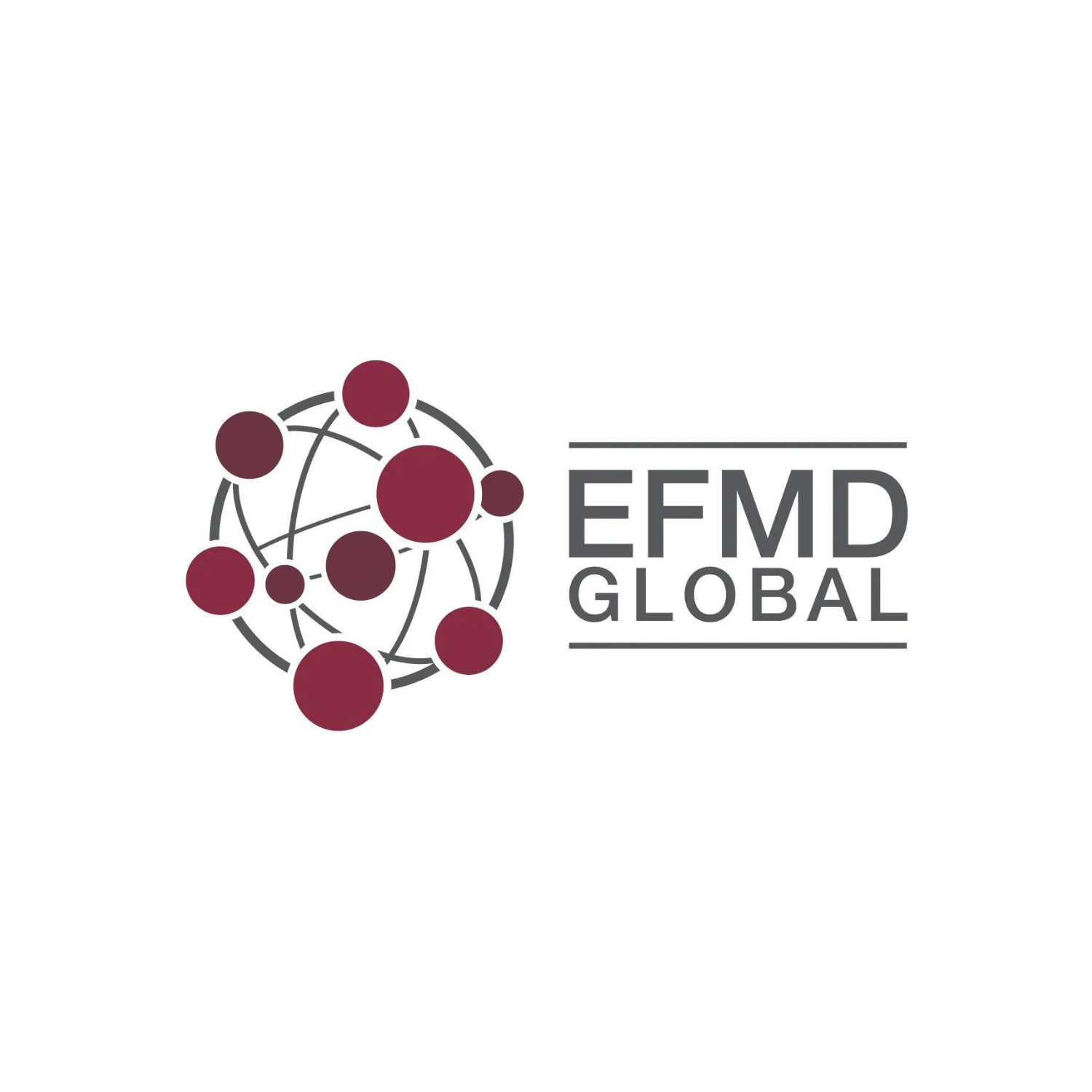#Week 02:
What are you doing daily to earn trust with others?


Are you looking for an introduction to international business school accreditation systems? If so, this webinar might be for you. Joanne Powell is guest speaker at KIMEP University‘s Bang College of Business webinar on Thursday, March 16th. Times are listed below and registration is required at https://lnkd.in/eNUu7Bqp
For advice and further details on any of the above, please contact the QED Accreditation Team at info@QEDaccreditation.com.

After the ANZQAN Conference, one attendee reached-out to us with, “all generally share the same challenges, but there are so many different ways to approach those challenges”. This is where the real benefit of these events arises – the ability to hear alternative approaches to challenges and perhaps be inspired to find more innovative approaches within our own domains.
Below are our takeaways:
Key Learning #1: There was a great Dean’s Panel discussion on managing accreditation strategies. This covered a variety of themes but the key take-away and reminder was to “keep doing the small (everyday) stuff” and not just wait for the “big events” to happen. This comment took place in the context of sustainability and a reminder that everyone has a role to play (and the importance of discussing and sharing good practice). However, it resonated more widely as a reminder that change is often present in a multitude of smaller habits that take place consistently. “We are what we repeatedly do: Excellence then is not an act, but a habit.”(Will Durant, attributed to Aristotle)
Key Learning #2: There was some great sharing of good practice related to socialising the mission. We really liked the suggestion to “embrace mission in both function and optics”. It spoke to the importance of ensuring that an organisation’s mission needs to be front and centre of
By embracing both function and optics, schools (or other organisations) are better placed to optimise the integration of the mission into every-day operations and strategy.
Key Learning #3: Internationalisation was a key topic for multiple reasons – including both general challenges arising from the Covid 19 pandemic, as well as ongoing geo-political challenges in several regions of the world. Reference was made to EFMD’s internationalisation framework (EFMD Accredited Process Manual Annexes (Annex 10, page 61)) OR EQUIS Standards and Criteria 2022 (last section of Chapter 8, page 73, “Further Guidance on Assessing Internationalisation” ) with one school (Curtin) illustrating how it has developed a set of parameters for each of the 12 dimensions of internationalisation (across the four categories of Policy, Content, Context and Network). The parameters for each dimension outline what characterises low, medium and high performance, in line with the School’s own mission and strategy. This seems like an excellent way to frame a School’s internationalisation priorities and a great example of good practice.
Finally, both EFMD and AACSB presented to the meeting. A key takeaway from each that might be of interest:
For advice and further details on any of the above, please contact the QED Accreditation Team at info@QEDaccreditation.com.

The AABS (Association of African Business Schools) forum for Deans & Directors was almost three days of learning, meeting people, amazing conversations and discovering. While QED, specifically our Joanne, attended the conference as a speaker and below are the takeaways from the Forum:
1. Sometimes if you don’t disrupt, you may end up getting disrupted!
In his keynote, Prof Fred Olayele (Carleton University, Canada) spoke to the need for those involved in business education to take a step back and really think about not just WHAT they do, but also HOW they do it. A key challenge lies in policy innovation and the fact that forging a ‘more dynamic economy’ across Africa requires (in addition to research etc) more openness to experimentation, testing, piloting and prototyping – all with the focus of creating more innovative approaches to the policy development process.
Key Question: What can business schools (not just in Africa) do to ‘move the needle’ in terms of business sector innovation?
2. Peter Diamandis’ 6D Framework
Kevin Allen spoke around exponential organisations and the challenges therein. There was so much to digest, but it was good to be reminded of Peter Diamandis’ 6D framework to describe the basic roadmap of technical innovation. The 6 Ds are: Digitize, Deceptive, Disruptive, Demonitize, Dematerialize, and Democratise. An explanation of each is available at https://www.diamandis.com/blog/the-6ds
Key Question: Where does the use of technology within << Test Organisation >> sit on Diamandis’ 6D Framework and what else should/could your organisation (or department) be doing to move further along the technical innovation roadmap?
3. Fast beats Slow
What a privilege it was to listen to both Tim Mescon and Jon Foster-Pedley on the topic of Deanship. Our take-away was watching how both these leaders shared an incredible richness of experience and wisdom with humility, lack of ego and generosity. There was much to choose from, but we think the focus on being clear on your purpose and really working to explicate the distinctiveness of your organisation were some of the key points. We were particularly struck by Tim’s reminder that “fast beats slow” – and the need to be agile and nimble (rather than large) so that the organisation can adapt to the changing context. Whilst the challenge was posed to deans and directors, there is a sense that this guidance is valid for all of us in some way within our own individual roles.
Key Question: What small thing could you do within your role (whativer your organisation) to improve adaptability in a changing context?
For advice and further details on any of the above, please contact the QED Accreditation Team at info@QEDaccreditation.com.

In June 2022, we attended EFMD’s Annual Conference in Prague. The theme of the event was “What brought us here might not get us there” and it’s fair to say that the conference focused heavily on reminding us of the need to continually reflect and adapt in a constantly changing world. We could have picked multiple points to share – but (as always) we’ve confined ourselves to just three broad areas:
Faculty Models – Connecting Research and Teaching
Patrick De Greve (Vlerick Business School) and Mark Smith (Stellenbosch Business School) presented an interesting session on employment models for faculty. There was lots to ponder, but my key take aways were:
Key Challenge: Do Business School faculty models fully serve their mission and strategic priorities? If not, what type of model might work (do we need to think ‘outside of the box’)?
Internationalisation
The challenge of internationalisation within constantly changing geopolitical climates was a key theme of a session by Caron Beaton-Wells (Melbourne Business School) and Delphine Manceau (NEOMA). In addition to advice around developing range and depth of partnerships; and using digitalisation to complement internationalisation activity; my key take-aways were:
Key Challenge: How are Business Schools placed to manage and adapt to geopolitical instability – both in terms of a) internationalisation activity and b) preparing students for a world of geopolitical instability. Remember, EFMD provides a potential model to examine and reflect on internationalisation across the entire school: See EQUIS Standards 2022 (especially pages 73-74) and Annex 10 of the EFMD Programme Accreditation Process Manual Annexes.
EFMD Updates
The EFMD team presented an update on each of the key accreditations. Most of these are covered within the most recent QED summaries of updates to each of EQUIS and EFMD Accredited (Available on the QED website for download). The following additional points are also relevant:
For advice and further details on any of the above, please contact the QED Accreditation Team at info@QEDaccreditation.com.
Recent Comments